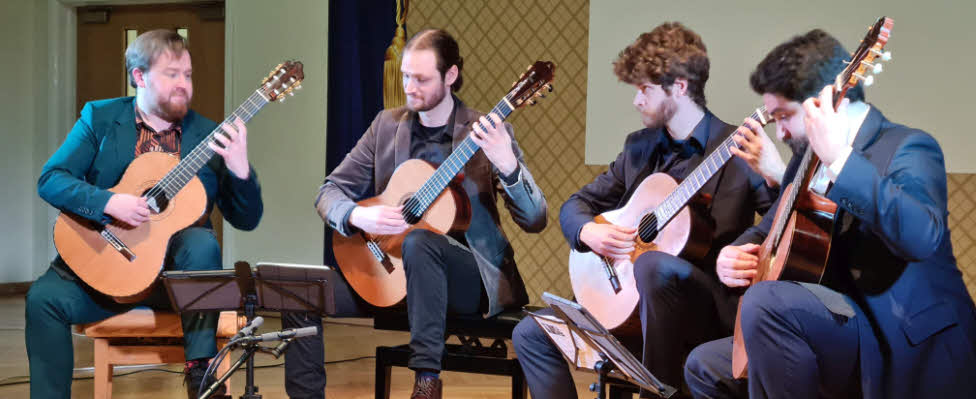Roderick Williams, OBE, has the reputation of being one of the very greatest baritones on the world stage. His concert at Shrewsbury’s St Chad’s showed exactly why: partnered by pianist Susie Allan, he gave us an evening of nineteenth century German songs, all delivered in their original language.
Mr Williams is a consummate performer; his huge presence, exuding as it does an enormous love for the music, delighted the audience and his subtlety theatrical gestures were used to enhance his singing. The first half of the programme was devoted to a performance of Robert Schumann’s song cycle “Dichterliebe”; sixteen short poems by Heinrich Heine. Mr Williams gave a valuable (and lightly iconic!) introduction to the song cycle. He pointed out that many listeners remember the work as much for the piano writing as for the singing! It really is a strange work, moving from the opening song with its idyllic praise to the month of May via a series of poems rich in imagery but often suggesting depression. Song 5, “When I want to plunge my soul” has the leanest part for the piano, a part which Ms Allan played to perfection; indeed, her contribution to the evening was impeccable, always matching her playing to the vocal line. Mr Williams gave a simply wonderful performance; his beautiful, warm tone and control of dynamics were evident throughout the cycle.
The same qualities were equally apparent in the second half of the concert. Mr Williams pointed out that one of the very few benefits of the pandemic was the time available to researchers and artists to look out works which had not found their way into the mainstream repertoire. This was especially true for compositions by women composers, two of whom were represented in the programme. First came a group of songs by Fanny Mendelssohn Hensel (who is perhaps one of the better-known female composers) which were more easily recognised as Romantic works and then a group of songs by Josephine Lang, a composer who lacked any formal training but had a strong, individual style which certainly deserves to be heard. The words are deeply emotional and highly personal reflecting her grief on being widowed.
Finally, four songs by Brahms brought the evening to a beautiful conclusion. These songs were unmistakably by Brahms. The melancholy of “In the graveyard” was followed by two fine songs, “Solitude in the countryside” and “Serenade”, both of which are exquisite, while “Message” brought the programme to a close.
But there was an encore: a song, setting a poem by Ruckert which Mahler later used but here the work of Clara Schumann. “Liebst du um Schoinheit” was exquisite.
This was a wonderful occasion, yet another fine concert organised by Shropshire Music Trust as part of their impressive 2022-23 season.
Andrew Petch







